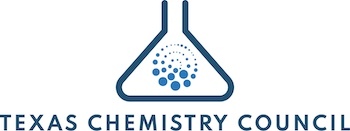Complete Story
05/15/2025
US Health Secretary Keen to ‘Incentivise’ Production of Sustainable, Non-toxic Food Packaging
Chemical Watch | Dr Amanda Doyle | May 9, 2025
US Health Secretary Keen to ‘Incentivise’ Production of Sustainable, Non-toxic Food Packaging
US Health Secretary Robert F Kennedy Jr has said that the Department of Health and Human Services (HHS) is aiming to tighten regulations to prevent the use of harmful chemicals in food packaging and improve national waste recovery systems for recycling.
Speaking at the Chemicals of Concern Policy Summit in Charlotte, North Carolina, on 23 April, Kennedy (pictured) outlined his health concerns relating to chemicals such as phthalates and per- and polyfluoroalkyl substances (PFAS) in food packaging. He also pointed to a directive the HHS issued in March to remove a "loophole" under the generally recognised as safe (GRAS) process that allows manufacturers to introduce new food contact substances and additives without pre-market review. Under the US Food and Drug Administration (FDA) food additive regulations, packaging that comes into contact with food is considered a food additive.
"We can incentivise industry to invest in sustainable packaging solutions that are non-toxic, recyclable, compostable," said Kennedy. "[We can] develop regulations and prevent new harmful chemicals from entering the market and break the cycle of toxic exposure."
He described the HHS’ intentions for rapid regulatory action, including testing of food additives. Legal experts told Chemical Watch News & Insight that these intentions should be taken seriously, although there will be legal hurdles and challenges resulting from FDA staff layoffs.
However, Kennedy said regulation is always playing catch-up and that HHS can never match industry’s pace of innovation. He encouraged packaging companies to "get ahead of the game".
Recycling and EPR
"It was only two generations ago that most food and drink came in cardboard, glass or paper, or it wasn't packaged at all," said Kennedy. "When I was a kid, most soda bottles and beer bottles were returnable. Today only a third of glass is recycled. AI sorting technology could change all that. I think we should take a serious second look at glass. It's probably the safest packaging material."
Kennedy also spoke of the importance of waste recovery systems and how many valuable materials are currently going to landfill. "It's not just toxic chemicals that leech into the environment, it's also dollars. Efficient waste recovery can make sustainable and healthy packaging economic."
A separate panel on recycling included discussions on how the introduction of extended producer responsibility (EPR) regulations in some states is a step forward, but there are still many challenges remaining for materials recovery.
Scott DeFife, president of trade association the Glass Packaging Institute, said: "Glass has been on the general list of materials that have been accepted as safe, both in the US and in Europe, with the REACH model and the FDA."
He said one of the big challenges with glass recycling is that it is commingled with other materials after it has been collected for recycling. This creates problems with the quality of the glass that can be recycled, as the glass that has been sorted at a materials recovery facility (MRF) may only have 20-50% usable glass, said DeFife.
"EPR is an opportunity to have a discussion and bring to light the issues related to quality," he added.
Harmful chemicals in packaging
Kate Davenport, chief of policy at NGO The Recycling Partnership, spoke about the importance of addressing chemicals management alongside waste management. "If we want this material back, to make new material, we do actually care about what's going into that material from a human health perspective, but also from a yield perspective and an economics perspective."
At an additional panel on practical pathways to improving recycling, Katie Drews, senior vice president at Minnesota-based zero-waste organisation Eureka Recycling, said: "Recycling was never designed to clean up toxics in the complex and ever-changing packaging that we're seeing today."
"It's not a failure of recycling, it's a failure of design and regulation. And so the real question isn't necessarily should we recycle. It's why are we still allowing toxic, hard and impossible to recycle materials into circulation, and then pretending like recycling is going to fix it all?"
PACKAGING PLUS: This article is part of a new, weekly news service from the Chemical Watch News & Insight team covering packaging regulations around the world. Click here for more details about this new content.

